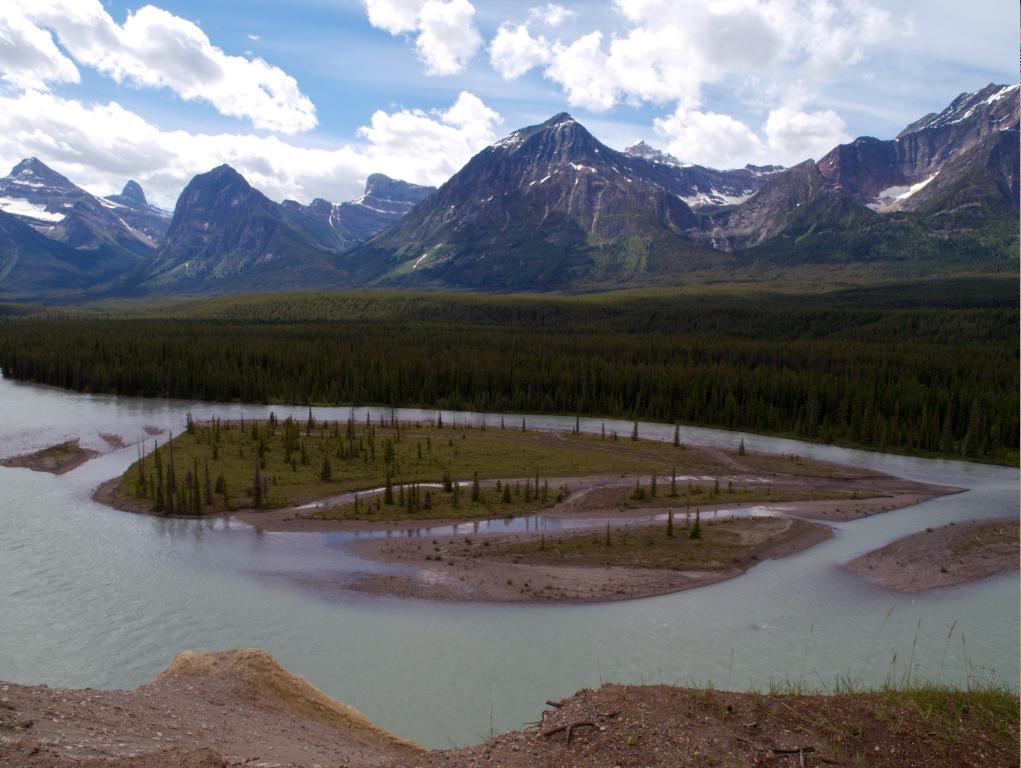Chip in to keep stories like these coming.
A long-term study of the Athabasca River warns about the future availability of river water for the tar sands.
The Globe and Mail reports, “Based on a 900-year record obtained from tree rings, researchers found that the Athabasca watershed has historically been subjected to prolonged dry spells that are far more severe than anything the region has experienced since the oil industry arrived there in the 1960s. And with climate change threatening to increase the frequency and severity of droughts, they say, Alberta’s oil producers may be relying on an ‘untenable assumption’ that the river’s flow today is representative of what they can expect in years to come.”
The article highlights, “Currently, oil sands production consumes less than 5 per cent of the river’s annual flow, amounting to 187 million cubic metres in 2012. But water use has been projected to climb to 505 million cubic metres within the next decade.” Right now about 1.08 billion barrels a year (2.98 million bpd) are extracted from the tar sands and the Canadian Association of Petroleum Producers sees that increasing to 2.35 billion barrels a year (6.44 million bpd) by 2030.
In terms of dealing with this situation, the news report notes, “Companies operating in the oil sands typically store water at times of higher flow to act as a buffer, but a sufficiently severe and long-running drought would overwhelm such measures. It may also force regulators to weigh the industry’s needs against damage to the river’s downstream ecosystems.” And it adds, “Regulators can apply cutoffs to industry if it’s determined that the river level is too low, but Syncrude and Suncor, the original two companies in the oil sands, are exempt. Both rely on water-intense surface mining to extract bitumen.”
But would North American Free Trade Agreement (NAFTA) — or even other “free trade” agreements like the Canada-European Union Comprehensive Economic and Trade Agreement (CETA) or the Canada-China Foreign Investment Promotion and Protection Agreement (FIPA) — diminish the ability of regulators to cut water supply to the tar sands?
In 2007, a study by University of Toronto professors Joseph Cumming and Robert Froehlich argued that U.S.-owned water-intensive oil companies operating in the tar sands could sue Canada under NAFTA Chapter 11 for hundreds of millions of dollars in compensation for lost profits should restrictions be placed on their water use.
Council of Canadians chairperson Maude Barlow has commented, “If the government of Alberta were to ever limit the current water access of the energy companies operating in the tar sands, transnational corporations could sue for huge sums of compensation from the government of Canada. Cumming and Froehlich warn that cancelling or limiting water licenses would be seen as a form of trade-illegal expropriation, costing the Canadian taxpayer potentially billions of dollars. Equally worrisome, they say, is the threat of such compensation might prevent the Alberta government from taking such a step in the first place, allowing energy corporations to dictate Canadian policy.”
Chip in to keep stories like these coming.




